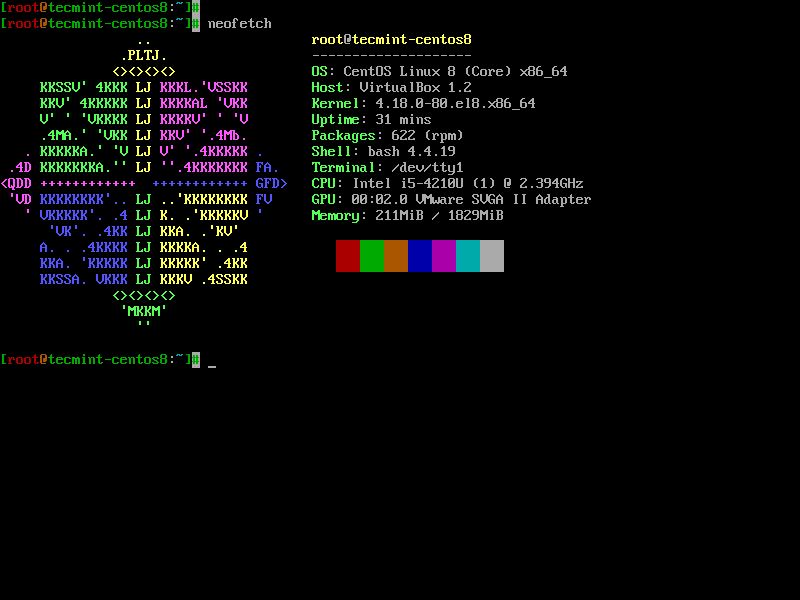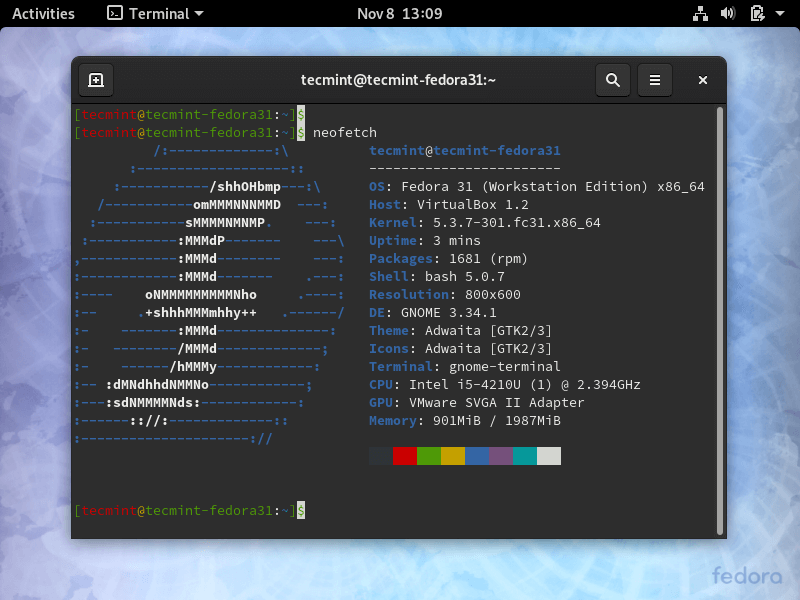Red Hat Enterprise Linux is a hugely popular enterprise-level operating system that supports a diverse range of open-source technologies such as Ansible automation, Hybrid Cloud, virtualization, and containerization.
In this guide, we highlight some of the most popular and widely used Linux distributions based on Red Hat Enterprise Linux.
1. CentOS
Built around the Redhat architecture, CentOS is a free and open-source community-developed Linux distribution that provides an enterprise-level computing platform. Initially released in 2004, CentOS is an excellent free alternative to the enterprise RHEL operating system. It comes recommended for users or small businesses that want to set up a server for file sharing, web hosting, and other enterprise-level tasks.

While it lacks the commercial support provided by RHEL, CentOS is well-renowned for its solid stability, corporate-level security, and other benefits thanks to its binary compatibility with RHEL. As such, it makes for an excellent choice for a web server. In fact, CentOS is a preferred choice in the web hosting industry particularly due to its stability and provision of the salient WHM/cPanel control panels that allow users to manage their domains.
CentOS is mostly recommended for advanced users given its long learning curve, unlike distributions such as Ubuntu which make it easy for beginners to get around and manage their software packages. There are vibrant community support and several forums that help users in case they get stuck. However, there’s less hand-holding as it is already assumed that users are at an intermediate or advanced level. Be that as it may, desktop enthusiasts can still download and install a CentOS image that provides a GUI desktop which mostly provides the GNOME environment.
Worth mentioning is CentOS Stream which is a rolling release version of CentOS that provides the latest software packages. It’s mostly used for research and testing and not recommended for production environments due to stability issues.
The latest version of CentOS, at the time of writing this guide, is CentOS 8.2.
2. Fedora
Fedora is the upstream community distribution for RedHat Linux. It’s a general-purpose distribution developed and maintained by the Fedora Project which is Redhat sponsored. It has a massive community and is mostly used by developers as a hub for developing and testing software packages before they are made available to RHEL or CentOS.
In fact, Fedora is considered a bleeding-edge distribution since it always rolls out the latest software packages, drivers, and utilities. So if you are going to opt for Fedora, rest assured that you will end with the latest software versions.

Fedora is well known for its ease of use and customization. It comes with a simple UI and ships with out-of-the-box applications for everyday day use. This makes it a popular distribution of choice among beginners who are looking to try out a Redhat-based distribution.
Fedora also holds security as a top priority and in fact ships with SELinux (Security-Enhanced Linux) which is a kernel security module that manages access rights. IT also goes a step further to include a firewall that is already enabled by default.
With a very diverse application, Fedora comes in 3 main editions: Fedora workstation for desktop and home users, Fedora Server, and Fedora IoT for IoT ecosystems such as Raspberry Pi.
The latest Fedora at the time of publishing this article is Fedora 33.
3. Oracle Linux
Oracle Linux is an enterprise-level operating system that is 100% binary compatible with Red Hat Enterprise Linux. It combines the stability and enterprise-grade security of RHEL with the flexibility and added security from Oracle’s development team to provide a formidable and robust low-cost Enterprise option.
Oracle Linux is free to download with absolutely no subscription fees and provides all security updates & patches at no cost. Perhaps the only cost involved is that of support, which is considerably lower than that of Red Hat Enterprise Linux. Additionally, Oracle Linux provides more support options than RHEL. Of notable mention is the Ksplice zero downtime patching service that helps you update your system with critical updates without the need for rebooting your server.
In terms of usability, Oracle Linux is extremely easy to set up and easier to learn for users not familiar with Linux. This is because most of the required packages are preloaded by default and can be enabled during installation.
With built-in integrations and optimizations from Oracle’s team, Oracle Linux is considered the perfect choice for enterprises running Oracle systems such as Oracle databases. It also goes without saying that Oracle Linux runs Oracle Cloud.
In comparison to Red Hat Enterprise Linux, Oracle Linux provides a more flexible and secure option for enterprises using or planning to make a switch to Oracle solutions.
The latest Oracle Linux at the time of publishing this article is Oracle Linux 8.3.
4. ClearOS
A common challenge facing many small businesses is complexity in deployment. Granted, Linux has made tremendous strides with regards to providing easy-to-use and user-friendly distributions. However, it’s quite a challenge looking for a low-cost data center solution. If you are looking for a server OS that leverages an opensource model to deliver a low cost and simplified IT experience for small businesses, then ClearOS is one of the options to turn to.
ClearOS is described as a simple, secure, and affordable operating system based on both CentOS and RHEL (Red Hat Enterprise Linux). It provides an intuitive web-based interface and an application store with over 100 apps to select from.
ClearOS is available in 3 main editions: Home, Business, and Community Edition. The home edition is ideal for small offices. The business edition is tailored for small and medium businesses that prefer the benefit of paid support, while the community edition is absolutely free.
The latest ClearOS at the time of publishing this article is ClearOS 7.
